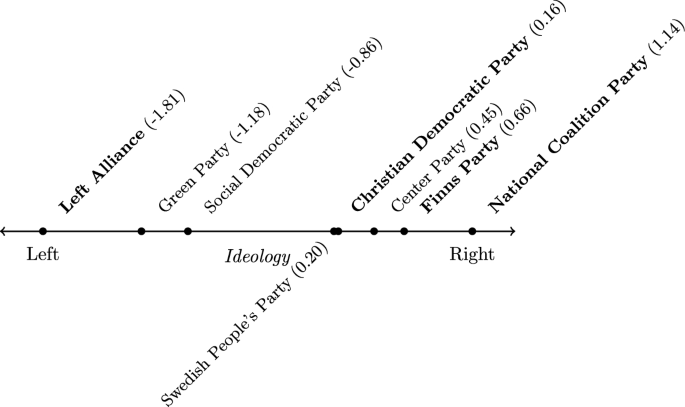Pre-electoral coalitions and the distribution of political power
IF 2.2
3区 经济学
Q2 ECONOMICS
引用次数: 0
Abstract
Abstract Pre-electoral coalitions (PECs) may increase parties’ chances of winning an election, but they may also distort electoral results and policies away from citizens’ preferences. To shed light on how PECs shape post-electoral power distribution, we study the causes and consequences of PECs in Finland where elections use an open-list proportional representation system, and parties may form joint lists. We present descriptive evidence showing that PECs are more common between parties of equal size and similar ideology, and when elections are more disproportional or involve more parties. Using difference-in-differences and density discontinuity designs, we illustrate that voters punish coalescing parties and target personal votes strategically within the coalitions, and that PECs are formed with the particular purpose of influencing the distribution of power. PECs increase small parties’ chances of acquiring leadership positions, lead to more dispersed seat distributions, and sometimes prevent absolute majorities. They can thus enable a broader representation of citizens’ policy preferences.

选举前的联盟和政治权力的分配
选举前联盟(PECs)可能增加政党赢得选举的机会,但也可能扭曲选举结果和偏离公民偏好的政策。为了阐明PECs如何影响选举后的权力分配,我们研究了芬兰PECs的原因和后果,芬兰的选举采用开放名单比例代表制,政党可以组成联合名单。我们提供的描述性证据表明,在规模相等、意识形态相似的政党之间,以及在选举比例更不均衡或涉及更多政党的情况下,政治利益共同体更常见。利用差异中的差异和密度不连续设计,我们说明了选民惩罚联合政党,并在联盟内战略性地瞄准个人选票,并且pec的形成具有影响权力分配的特定目的。PECs增加了小党获得领导职位的机会,导致席位分配更加分散,有时还会阻止绝对多数。因此,它们可以更广泛地代表公民的政策偏好。
本文章由计算机程序翻译,如有差异,请以英文原文为准。
求助全文
约1分钟内获得全文
求助全文
来源期刊

Public Choice
Multiple-
CiteScore
3.60
自引率
18.80%
发文量
65
期刊介绍:
Public Choice deals with the intersection between economics and political science. The journal was founded at a time when economists and political scientists became interested in the application of essentially economic methods to problems normally dealt with by political scientists. It has always retained strong traces of economic methodology, but new and fruitful techniques have been developed which are not recognizable by economists. Public Choice therefore remains central in its chosen role of introducing the two groups to each other, and allowing them to explain themselves through the medium of its pages.
Officially cited as: Public Choice
 求助内容:
求助内容: 应助结果提醒方式:
应助结果提醒方式:


